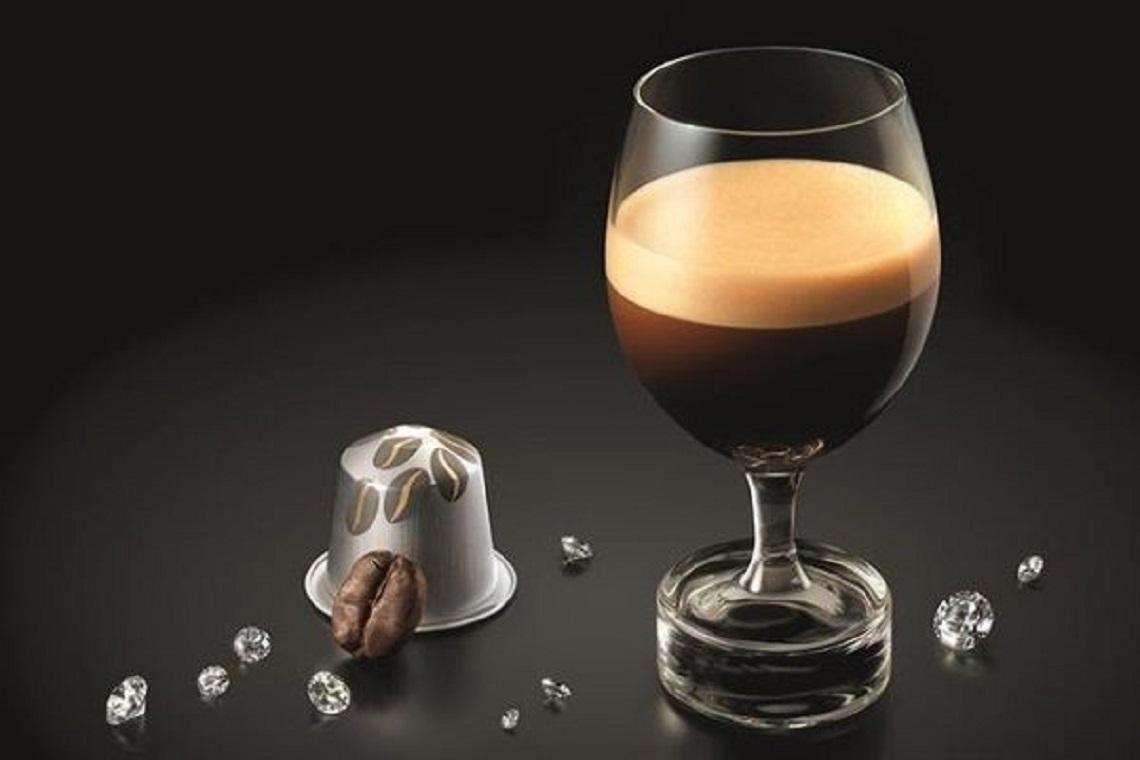Using science to create new value in coffee at CoCoTea 2015
“The Quality of the Experience” was the theme of the 2nd Coffee Conversation hosted by Nespresso as part of the 2015 International Congress on Cocoa, Coffee and Tea (CoCoTea), held from 22 to 24 June in Aveiro, Portugal.
Now in its third edition, CoCoTea offers an arena for knowledge exchange among international scientists dealing with various aspects of the three popular foods, including chemistry, technology, nutrition and health.
Following the success of its inaugural Coffee Conversation held at CoCoTea in Naples in 2013, Nespresso was pleased to return this year, bringing new perspectives to coffee science with its interdisciplinary symposium. At the half-day event, an international group of leading academics and industry experts contributed to lively presentations and debate from a variety of disciplines and perspectives. “The Coffee Conversation is a unique platform where we bring together specialists with diverse backgrounds to discuss new and intriguing issues,” said Britta Folmer, Nespresso Science Manager and organiser of the event. “It is a forum where people who would not normally meet have a chance to share their insights and expertise.”
How the coffee experience goes far beyond taste
Four presentations set the context for the conversation by addressing the creation of value in the coffee industry from the viewpoint of various disciplines.
“The holistic experience of coffee quality” was explored by Peter Giuliano, director of the Specialty Coffee Association of America (SCAA) Symposium (USA). He traced the history of coffee in various societies from Ethiopian coffee rituals to the present day. Coffee went from being a luxury to commonplace when it was industrialised in the early 1900s, but in the second half of the century, the idea of coffee as a beverage to be appreciated re-emerged. Giuliano discussed factors that influence flavour perception, from coffee variety to coffee preparation, and the dual role of the barista in creating both a delicious cup and a multifaceted experience to deliver customer satisfaction.
Sílvia Rocha, Professor of Chemistry at Aveiro University (Portugal) pointed out how smells influence human emotion and memory, and that this is employed in various industries. She addressed how the value chain defines a product’s flavours, be it wine or coffee. Rocha also noted how statistical methods are being used to show how aroma compounds in wines are linked to the variety of the vine. Similar findings have been made with coffee, although not yet as advanced.
Melissa Caldwell, Professor of Anthropology at the University of California, Santa Cruz (USA) approached the topic in terms of social behaviour. She explored how physical aspects of a place of consumption, the social environment experienced within it and our emotional response to these factors all contribute to the quality of the experience, and vary greatly from culture to culture. Public coffee spaces maintain a fine balance between the shared experience and the privacy that people also expect. Caldwell also noted the role morality can play in introducing aspects of cultural value and ethics to the coffee experience.
Rick Schifferstein, Professor of Industrial Design at Delft University (Netherlands) focused on understanding, measuring and influencing the consumer experience through factors such as product and packaging design and presentation. He defined the product experience as an awareness of the psychological effects elicited by the interaction with a product, including how it stimulates our senses; the meaning and value we attach to it; and the emotions that it awakens.
Similarities and differences between coffee and wine
The discussion was then broadened by three industrial experts from the fields of coffee and wine, who contributed their unique professional insight in creating powerful and meaningful consumer experiences.
Luís Sottomayor (Sogrape), Georg Riedel (Riedel) and Karsten Ranitzsch (Nespresso) joined the conversation, which led the audience through various aspects of the quality of the experience. Topics included the quality of the product and how it is perceived, rituals of consumption and cultural factors affecting the product’s meaning.
The differences between coffee and wine are just as important as the similarities, noted Peter Giuliano. “Coffee is drunk in the morning, wine is not. Coffee is drunk at work, and wine generally isn’t. Meeting somebody to share some wine has a different meaning than meeting somebody to share coffee. I think it is important to remember those things. Coffee is about energy and industry and communication; wine is about luxury and indulgence and camaraderie.” “From an analytical point of view, coffee is more complex than wine. We detect more compounds in coffee brewed than in wine,” said Sílvia Rocha. “The difference is that in wine, there are a lot of different classes of compounds with very different aroma descriptors.”
It was also observed that the longer cultural history of wine and more advanced sensorial expertise in the field also affect how quality is perceived. “When I buy a wine I know the producer, the variety and the year of the harvest,” added Rocha. “It’s possible to know a lot about wine and this creates a connection between the consumer and the product. With coffee, the connection is not so strong. Maybe coffee companies will think about this.”
For Georg Riedel, the ageability of wine is the greatest difference between the two beverages. “100+ years… this makes a very unique experience because you are drinking history. This kind of pleasure has to be shared. You need to have somebody you love to share this. This, to me, is the greatest differentiator.”
Physical and cultural impacts on the quality of the experience
Another area of discussion was how the cup, as the tool for delivery, influences the coffee experience. Two simultaneous trends were observed. On the one hand, convenience has driven the use of paper cups. On the other hand, a cup can also be designed for the experience. The shape and material of a drinking vessel goes beyond functionality to convey a message. “Drinking vessels “help us to be more attentive… so we can take a moment to appreciate the coffee and reflect on the taste itself,” observed Karsten Ranitzsch, Nespresso Head of Coffee. Precisely these aspects were considered in the co-development with Riedel for the Nespresso Reveal glasses.
The Coffee Conversation then turned to the specialty coffee movement and its increasing focus on the meaning of the beverage. Rick Schifferstein commented on the importance of creating a multi-layered experience, “to create a great product but also a great context in line with the cultural setting.” For Peter Giuliano, the coffee industry has “a moral imperative to increase [the value of the coffee experience] and pass that value back to make it sustainable for coffee farmers.” Melissa Caldwell noted that flavour and aroma are part of a larger cultural system that incorporates aspects of trust, identity, heritage and beliefs. Ultimately, quality is defined in relation to the cultural norms in which it is embedded.
While coffee spaces may offer a coffee menu indicating variety, terroir or the producer, it was questioned whether or not consumers are ready for this more intimate and personal relationship with the product. Coffee has different functions and meanings, depending on the time of day, culture, habits and ethics. It was suggested that coffee spaces should have separate areas: one driven by convenience, the other by sharing and enjoyment, as a place to bring meaning and quality to the coffee experience.
Karsten Ranitzsch concluded by observing the multifacetedness of coffee as both an art and science. “It’s amazing to see that coffee is something that is really on the move constantly,” he said. “We have learned a lot about how we can look into different methods of production. There is a wealth of ritual behind coffee, and at the same time, we are reinventing the coffee ritual. Its meaning is always different from generation to generation.”
Related stories:
Nespresso engages in dialogue on coffee expertise at World of Coffee Expo in Rimini

